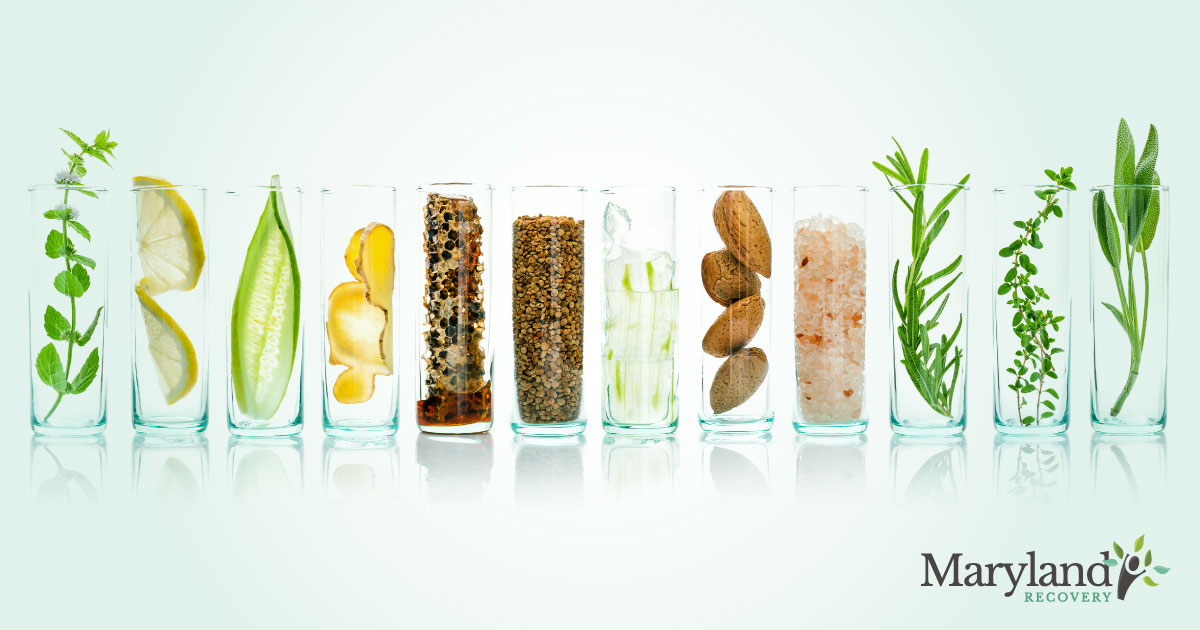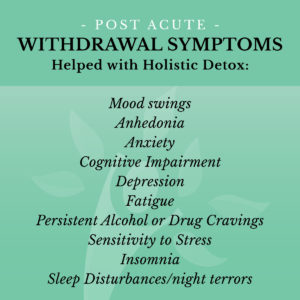
After prolonged drug or alcohol use, the first step to making your life whole again is to rid your body of the toxic substances that fueled the addiction. In addiction treatment, this first essential step is commonly known as detox. In a physiological sense, detox is a process by which harmful chemicals or toxins are removed from your biological system. Ridding your physical body of these toxins can take days, weeks or even months to complete. Though the deep-rooted psychological effects of prolonged drug or alcohol addiction can take years to heal.
Research indicates the most effective treatment trajectory for someone in early recovery is to be found in the comprehensive treatment of holistic drug and alcohol rehabs.
What Does Holistic Mean?
Holistic describes a series of interconnected parts, whose collective purpose is only revealed in the context of a greater whole. In this case, the person is the greater whole.
Holistic medicine is a mode of treatment designed to improve the health outcome of the whole person and to focus care beyond just the physical symptoms of the disease. Holistic rehabs incorporate mental, spiritual, emotional, and social functioning into the treatment plan. Whether it concerns holistic heroin detox, holistic alcohol detox or holistic prescription drug detox, the goal of treating the whole person is constant.
Why Are Holistic Addiction Programs Important?
Whether an individual has spent weeks, months or decades battling addiction, the chemical imbalances produced in the brain take time to heal and recalibrate. Over a prolonged period of substance use, normal social functioning, the ability to maintain healthy interpersonal relationships with friends, family and loved ones can be severely affected. The ability to maintain employment or educational goals, establishing consistency with your diet and adhering to a regular exercise routine, can all be hindered by substance addiction.
Essential Aspects Of A Holistic Addiction Treatment Program
- Medical treatment. Treatment in a holistic detox center involves the whole body, including the physical and mental states – and looking at short-term and long-term medical options to regulate the systems of your body and brain to promote long-term recovery. This can include medication for depression, anxiety or compulsive disorders.
- Individual therapy. Having an independent third-party expert evaluate your past behavior and weigh in on your future goals and expectations is also essential in any holistic drug or alcohol rehab center.
Group therapy. Finding respite from your own situation through the shared experience of others – group therapy allows individuals in recovery to not only benefit from the connections made, but to begin giving back, sharing advice, helping peers find their own strength. - Physical activity. Exercise reduces stress and produces natural endorphins that can counteract the withdrawal symptoms resulting from substance detox. Regular physical activity can bring structure to an otherwise chaotic life, can have a positive effect on confidence, and increase the probability of achieving life goals.
- Substance addiction often results in poor diet and malnutrition. A healthy diet can affect not only your physical appearance, but also your mental and emotional well-being. Exercise combined with diet can increase longevity and provide an added layer of structure to your life.
- Meditation and Yoga are proven methods to reduce stress, focus your good energy and promote positivity. As a coping mechanism, exploring spirituality can reduce stress, reduce your chances for relapse, and decrease your risk of any number of major health conditions.
- Individuals battling addiction typically struggle to maintain healthy interpersonal relationships. Cultivating and sustaining healthy relationships are essential to achieving and sustaining happiness in life. It may take time to re-build and to mend fences. Accountability, empathy, humility, and grace – focusing on: What can I do for you, not how can you help me.
- 12-Step Programs. These programs are a key component of most holistic rehabs, and the longest standing method of treatment for drug and alcohol addiction – Narcotics Anonymous (NA) and Alcoholics Anonymous (AA) programs have proven to be among the most effective ways to maintain long-term sobriety.
The Dangers Of A Non-Holistic Treatment Program
Non-holistic treatment programs typically have a single focus: to get the client off the substance he or she is addicted to. Typically, there is no counseling or therapy involved. These programs are positioned solely to physically remove the toxins from a person’s system. Once an individual is stabilized medically the treatment ends.
Non-holistic treatment programs typically have a higher rate of relapse than the programs of holistic rehab centers.
A National Institute on Drug Addiction report found that heroin users who received non-holistic opioid detox reported a 91% relapse-rate in drug use. And 59% of those cases reported relapse less than a week after receiving treatment.
Holistic Dual Diagnosis Treatment
According to the Substance Abuse and Mental Health Services Administration (SAMHA), in 2014 there were 21.5 million Americans suffering from substance use disorder, with 7.5 million of those also suffering from a persistent mental health disorder. This classification is known as a dual diagnosis, or co-occurring mental health and substance abuse disorder.
More than one in three individuals suffering from addiction issues is also battling a serious mental health condition. The substance issue may be a result of the individual self-medicating the symptoms of the disorder.
Common symptoms of a mental health disorder include:
- Depression
- Mania
- Anxiety
- Insomnia
One of the difficulties in treating a patient with a dual-diagnosis is that those individuals are not always open and honest with medical professionals regarding the drugs or alcohol he or she may using. Psychiatric drugs should never be mixed with even a small quantity of alcohol, and certainly not with any powerful street drugs or prescription opioids.
How Does Holistic Rehabilitation Integrate Mental Health And Addiction Treatment?
Holistic prescription drug detox and holistic alcohol detox rehabilitation take your mental health and well-being into account; the treatment is not confined to the biological process of detoxifying the harmful chemicals from your body. That detox process is always the first step, but holistic rehabs push further, providing individuals in recovery with the tools, the insight, and if needed, the psychiatric medication, to facilitate a long-term, sustainable, substance-free life.
Reviewed by Christopher Schwartfigure MS, LGPC, CAC-AD









